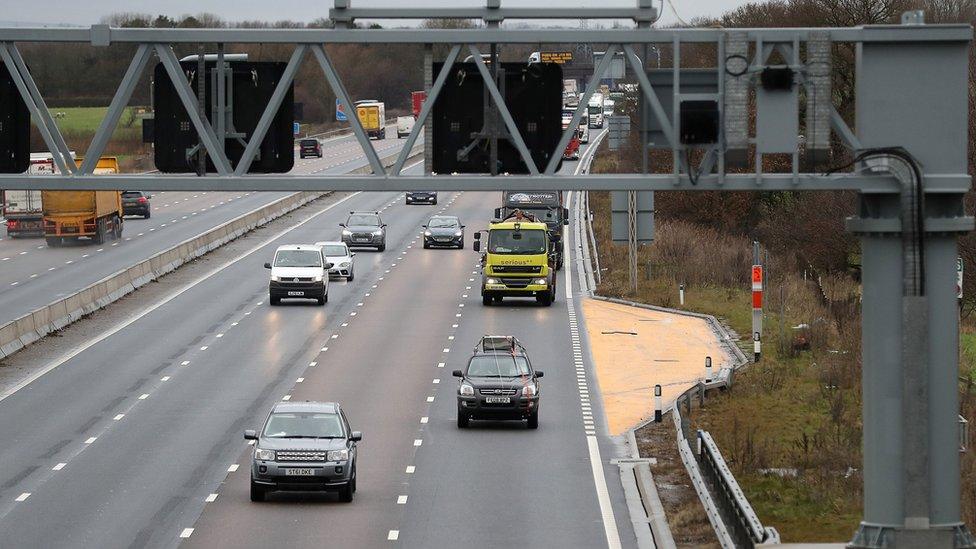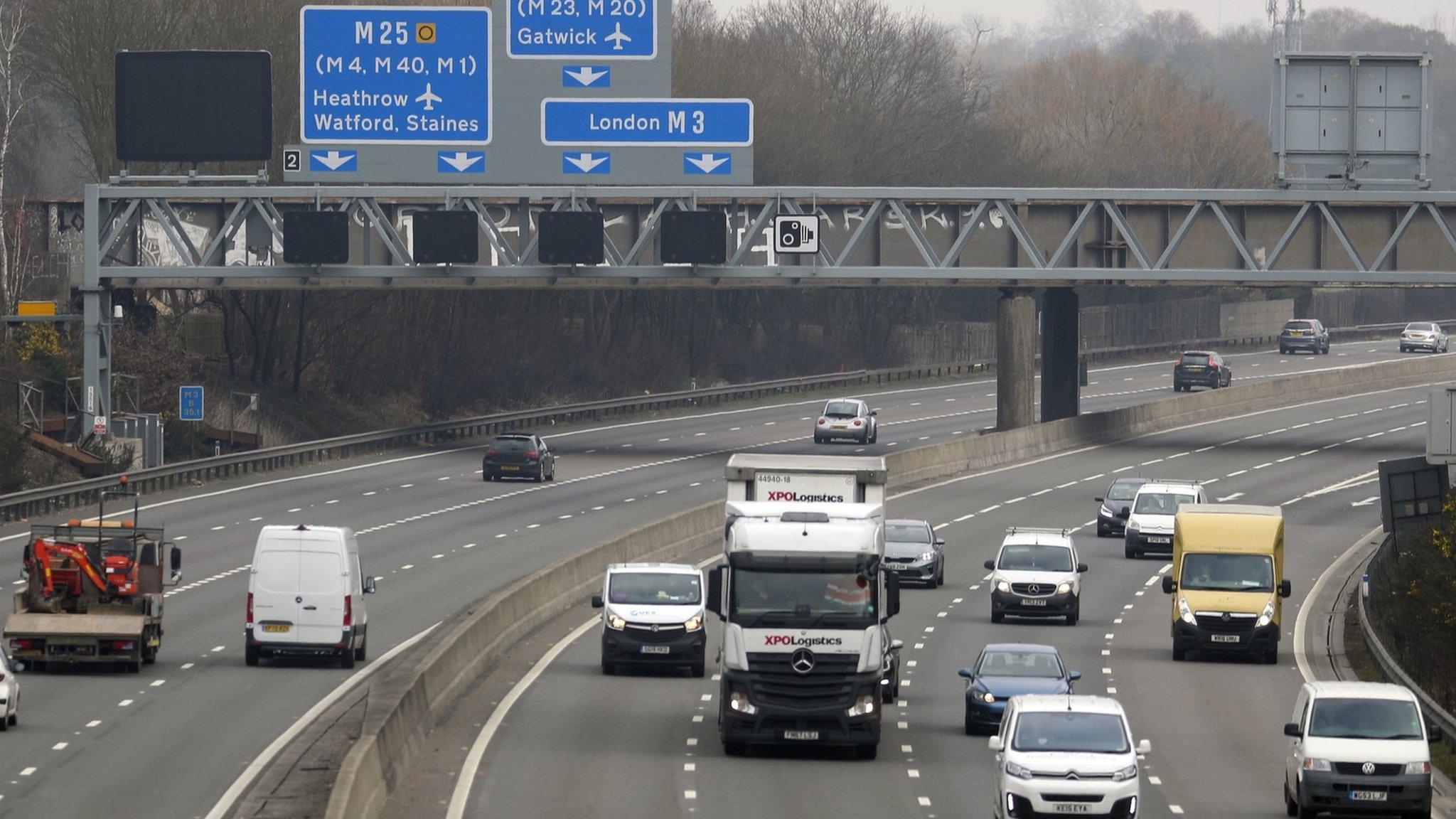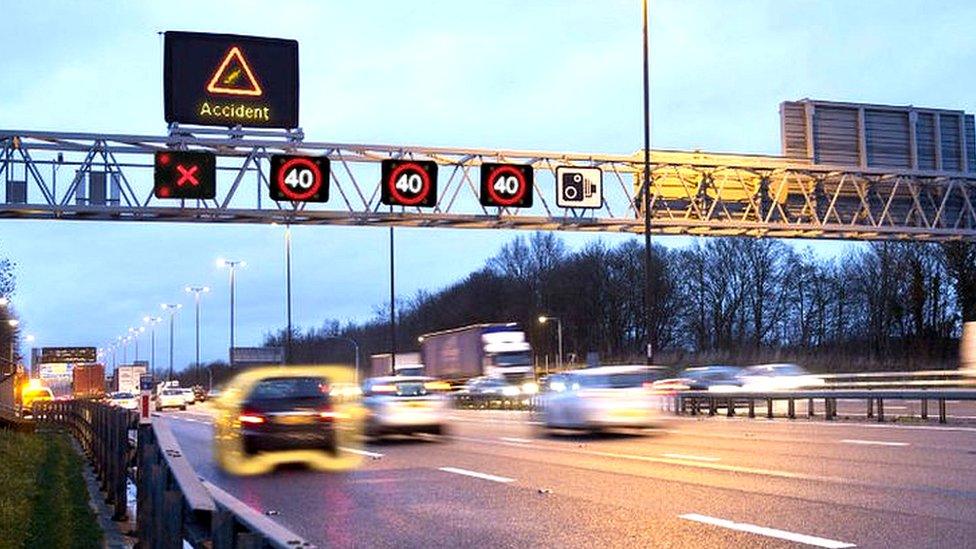Scrapping smart motorways a partial victory, says police boss
- Published

Refuge areas have replaced a constant hard shoulder for all-lane-running smart motorways
Scrapping new smart motorways is only a "partial victory" for campaigners wanting to end them, South Yorkshire's Police and Crime Commissioner has said.
The building of all new smart motorways is to be cancelled over cost and safety concerns, the government said.
Dr Alan Billings welcomed the decision but raised concerns that existing smart motorways would remain in place.
He said the move was half a victory in a campaign "to have smart motorways done away with once and for all".
Dr Billings said the move did "nothing to change" the fact that a number of people had died on stretches of the M1 through South Yorkshire.
Existing smart motorways - making up 10% of England's motorway network - will remain and undergo a previously announced safety refit to create 150 more emergency stopping places.
The M62 between junctions 20 and 25 in West Yorkshire will no longer become an all-lane-running smart motorway, with the M62 between junctions 25 and 30 remaining as a dynamic smart motorway.
A project to convert the M1 between junctions 35A and 39 to smart motorway has been cancelled.
'Inherently dangerous'
Currently, smart motorways either have a dynamic hard shoulder, where drivers can use it as a normal lane, or where the hard shoulder has been removed to become all lane running.
Lanes can then be closed using overhead signs and speed limits changed.
A lack of a hard shoulder contributed to the death of a grandmother on the M1 in South Yorkshire, a coroner previously ruled.
"If, as the government now believes, there are issues about the safety of smart motorways, then those safety concerns apply as much to existing smart motorways as to any new ones," Dr Billings said.
He called on government to reinstall the hard shoulder.
"I remain firmly of the view that having people break down or stop for whatever reason in a live lane is inherently dangerous," he added.

Follow BBC Yorkshire on Facebook, external, Twitter, external and Instagram, external. Send your story ideas to yorkslincs.news@bbc.co.uk, external.
Related topics
- Published16 April 2023

- Published22 April 2024

- Published3 November 2022
